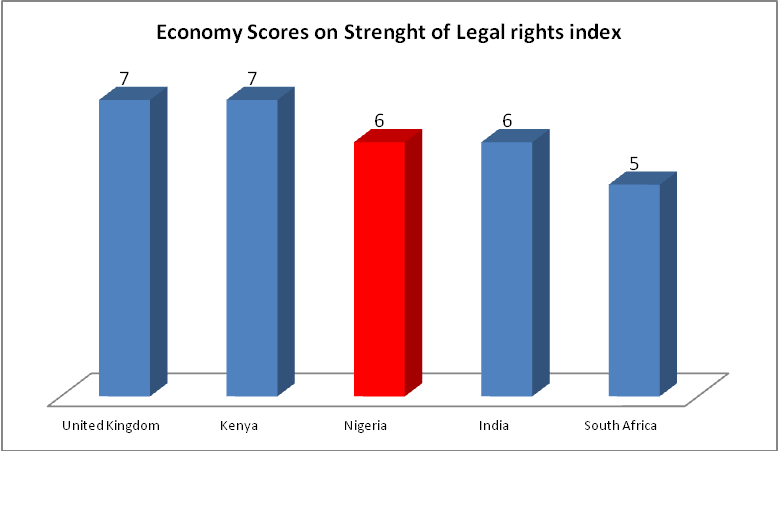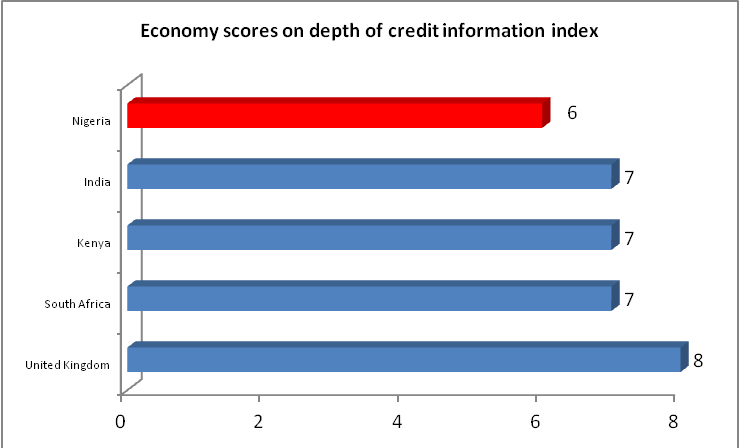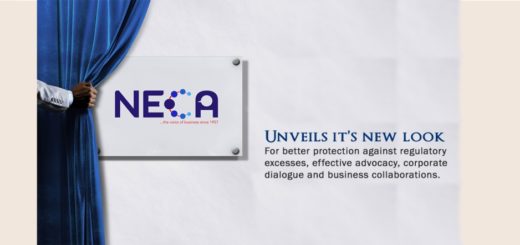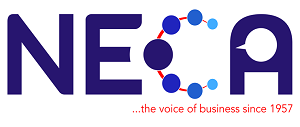BUSINESS ESSENTIALS Vol. 3 No 21
Dear Esteemed Member,
As you are aware, Employers like other well meaning stakeholders are concerned about the rising unemployment situation, especially in Africa. Employers under the auspices of the International Organisation of Employers (IOE), in its bid to promote inclusive and sustainable Economic Growth within the context of decent work for all, has set up a ‘Task Force on Employment and Employability for Jobs in Africa’ which had in turn released its ‘Blueprint for Jobs in Africa’ to drive the initiative. We shared with you in this edition, a link that will enable you access the detailed blueprint.
We continued our series on ‘2016 Doing Business Report’ of the World Bank. In this edition, we x-rayed the Ease Of Getting Credit with our opinion on improving the rating. Also we highlighted recent immigration rules for the information of Employers with Expatriates in their Organisation.
The regular Labour and Employment Law Review and Upcoming Training Programmes were not left out.
Have a pleasant reading.
Timothy Olawale
Editor
In this Issue:
- African Employers to launch Jobs for Africa Foundation
- Ease Of Getting Credit: Nigeria’s Ranking In 2016 Doing Business Report
- r
- LABOUR & EMPLOYMENT LAW: Action in a Representative Capacity (Livinus A. Olisakwe & 4 others: for themselves and on behalf of sacked staff of Air Nigeria Development Limited vs. Air Nigeria Development Limited & 2 Others; 2014) 51 N.L.L.R. Pt 170, P. 438 NIC
- Upcoming Training Programmes

How to Develop a Good Relationship with Your Boss’s Boss Your relationship with your boss is critical to your success. But there’s another person who often has just as much influence over your career: your boss’s boss. Here’s how to foster that connection without undermining your manager.
Adapted from “To Boost Your Career, Get to Know Your Boss’s Boss” by Rebecca Knight |
African Employers to launch Jobs for Africa Foundation
Dear Members, Partners and Colleagues,
As you are probably aware, the African Employers’ Task Force on Employment and Employability has drawn up a Blueprint for Jobs in Africa. The Blueprint sets out ten Recommendations that African governments, working closely with employers’ organisations and trade unions, should implement in order to sustain growth and accelerate the pace of job creation in the continent.
Job creation is an important priority of the African Union Commission in the Ouagadougou Declaration on Employment and Poverty Alleviation and the Africa 2063 Agenda. It is also an important objective of sustainable development goal (SDG) number 8 which seeks to promote sustained, inclusive and sustainable economic growth and decent work for all. As you know, job creation through sustainable enterprises is a core priority of the IOE.
In order to continue with this work, the IOE, with the support of the ILO, the European Commission and other partners, will launch the Jobs for Africa foundation. The main objective is to advance the work of the Taskforce by supporting governments, African employers’ organisations and trade unions to implement the 10 Recommendations of the Blueprint for Jobs in Africa.
The detailed ‘Blueprint for Jobs in Africa’ document can be downloaded (follow the link): NECA’s News Blog.
EASE OF GETTING CREDIT: NIGERIA’s RANKING IN 2016 DOING BUSINESS REPORT
Globally, access to finance is a critical success factor in the growth and development of the businesses, and available statistics show that in the developed countries of the world, real sector are responsible for being the major drivers of growth in their economies. The existence of an environment that is conducive to doing business is very important in this regard and partly responsible for this development in developed countries.
Nigeria cannot afford to be an exception if she intends to be in the top 20 economies of the world by year 2020 according to Vision 20:2020, the nation’s economic blueprint. However, the development of real sector in Nigeria and their overall contribution to the economy are hampered by the fact that access to finance still constitutes a major obstacle to growth.
How We Fared:
According to the 2016 Doing Business Report of the World, Nigeria stands at 59 in the ranking of 189 economies on the ease of getting credit compared to 52nd position in 2015. The rankings for comparator economies provide useful information for assessing how well regulations and institutions in Nigeria support lending and borrowing.
The Report assesses the sharing of credit information and the legal rights of borrowers and lenders with respect to secured transactions through 2 sets of indicators. Firstly, the depth of credit information index measures rules and practices affecting the coverage, scope and accessibility of credit information available through a credit registry or a credit bureau. The strength of legal rights index measures whether certain features that facilitate lending exist within the applicable collateral and bankruptcy laws.
One way to put an economy’s score on the getting credit indicators into context is to see where the economy stands in the distribution of scores across economies. The Figure below highlights the score on the strength of legal rights index for Nigeria and shows the scores for comparator economies as well as the regional average score and the depth of credit information index.
Source: World Bank Doing Business Report 2016/NECA Research
NB: Higher scores indicate that collateral and bankruptcy laws are better designed to facilitate access to credit.
Source: World Bank Doing Business Report 2016, NECA Research
NB: Higher scores indicate the availability of more credit information, from either a credit registry or a credit bureau, to facilitate lending decisions. If the credit bureau or registry is not operational or covers less than 5% of the adult population, the total score on the depth of credit information index is 0.
OPINION
- MSMEs in other climes, have had similar challenges in the history of their development and a key learning point is the pivotal role of the government in the transformation of this critical segment. Some of the areas of impact include: policy development, capacity building, business incubation, access to finance and market access development.
- Generally, government defines effective policies to address the issue of excess taxation/ levies, piracy and abuse of intellectual property, etc. Brazil’s government reduced tax bureaucracy for MSMEs by simplifying the tax filing (from eight documents to a single document), and unifying federal, state and municipal taxes under the Simple National tax reduction programme. By July 2011, 3.6 million small enterprises had been granted tax exemption by subscribing to the programme. We believe that such policies will help the economy.
- We applaud the recent initiative of President Muhammadu Buhari in setting up a Presidential Committee that would help improve the ease of doing business in Nigeria. This, we believe will drive the country’s position in global ranking to 100th position on the ease of doing business index from the 169th position it occupies now.
- We believe that for continuity of Government policies, we advised that there should be a good working relationship of such Committee with umbrella associations to chart a way forward for easing doing business in Nigeria.
- We opined that, it is the right time for the country to take the path of reforms and transformation, when there is significant economic downturn, when we have lower oil price translating to lower revenue.
EMPLOYMENT OF EXPATRIATES IN NIGERIA AND COMPLIANCE WITH IMMIGRATION RULES
Immigration law in Nigeria is governed by the Immigration Act, CAP I171, Laws of the Federation of Nigeria, 2004. It provides the legal and regulatory framework for the entry and departure of persons into or out of Nigeria; usually for economic and social reasons. The Immigration Act provides that persons entering into Nigeria, or leaving Nigeria, are required to be examined by an Immigration Officer, who may, on the information provided, refuse admission to any non-Nigerian citizen in any proper case.
The Nigerian Immigration Act Cap 171, LFN 2004 and the Immigration Regulations made contain provisions for the employment of expatriates in Nigeria. Section 8 of the Immigration Act provides that any foreigner seeking employment or work permit in Nigeria must obtain the consent of the Comptroller General of Immigration. This consent is issued in the form of an Expatriate Quota (EQ). The EQ permits companies to employ expatriates to specifically approved job designations, and also specifies the duration of such employment.
In a bid to ensure compliance with Nigeria immigration laws, the Nigeria Immigration Service (NIS) has renewed its focus on the activities of companies that employ expatriates in the country. In practice, expatriate staff or their employers may be in violation of immigration rules in many ways. Below are some of the common pitfalls that companies employing the service of expatraits fall into:
- Long vs. Short Term Assignments: Expatriates employed on a long term basis (six months or more) are required to apply for and obtain Expatriate Quota Positions (EQPs) while those on short term assignments must apply for Temporary Work Permits.
- The use of wrong quota designations for assignees: It is important that companies apply for appropriate EQPs that match the job description of the assignees in Nigeria. The use of quota positions different from the job description of the assignee is an abuse of the quota subject to sanctions.
Employing assignees without appropriate qualifications and understudy
Another pitfall is employing expatriates that do not possess basic qualifications required to occupy the quota positions. The minimum qualification is usually a university degree or its equivalent. The only exception to this is for job descriptions that require specialised training such as the use of earth moving equipment, and aircraft maintenance technicians. Also, every assignee must have a Nigerian assigned to understudy them in order to ensure transfer of skills and experience.
Employment of accompany dependant
Accompany dependants are not allowed to work in Nigeria on accompany status. To employ an accompany dependant, the employing company is required to obtain a quota position and must file a Change of Status Application. The dependant must possess all required qualifications and experience.
- Non filing of deletion applications – Companies are required to file deletion application for assignees whose assignments have been completed. Non filing of deletions can stall future employment as it will be assumed that the current assignee still occupies the position. This could also lead to tax exposures.
- Filing of returns – Companies are required to file accurate expatriate quota returns on a monthly basis. The returns must match those filed for tax purposes. The NIS has been co-opted as a member of the Joint Tax Board to facilitate exchange of information and detection of abuse.
- Extension of non-work visas: Visitors on business and tourist visas are required to apply for a visitor’s pass if they stay in the country more than 56 days. There are fines for non-compliance.
Implication of non-compliance
Failure to comply with immigration laws can attract fines between N50,000 and N3 million. There is also the risk of prosecution and possible imprisonment of principal staff of erring companies and deportation of expatriates.
Introduction of African Union (AU) Passport: There is a new initiative to integrate Africa and encourage free visa entries within Africa. African nationals will be able to obtain African Union electronic passports that will make this possible by 2020. We expect this to impact significantly on intra-Africa migration when fully implemented.
LABOUR & EMPLOYMENT LAW: Action in a Representative Capacity (Livinus A. Olisakwe & 4 others for themselves and on behalf of sacked staff of Air Nigeria Development Limited vs. Air Nigeria Development Limited & 2 Others; 2014) 51 N.L.L.R. Pt 170, P. 438 NIC
Facts:
- By a General Form of Complaint dated and filed on 20th September 2012, the claimants sought the following reliefs, amongst others:
- A declaration that the purported termination of the claimants’ employment by the defendants via media in the face of newspaper was wrongful, unlawful, illegal, null and void and of no effect whatsoever.
- A declaration that the Notice of dismissal on the newspaper was not a valid notice.
- An order that the defendants pay the claimants the arrears of salary from May 2012 to August 2012
- An order that the defendants pay the claimants at least one month salary in lieu of notice which was never served on them.
- An order that the defendants produce the Tax Clearance Certificates of the claimants in respect of Taxes deducted from their monthly emoluments that due and outstanding as agreed upon in the Employee Handbook, etc
- In reaction, the 2nd and 3rd defendants filed a conditional appearance dated 9th October 2012, Notice of Preliminary Objection, Affidavit in Support and Written Address dated and filed on 16th October 2012
The preliminary objection is seeking the following:
- An Order striking out the entire suit on the grounds that the reliefs in the Statement of Facts of the claimants are personal in nature and cannot be brought in a representative capacity, and on the grounds that the Statement of Facts did not show that the claimants had the requisite consent and authority of all the parties before instituting the case in a representative capacity
- Alternatively, an order striking out the names of the 2nd and 3rd defendants on the grounds that they are the Chairman and Chief Executive Officer of the 1st defendant-company, and that the acts complained of by the claimants related only to acts of the company, a duly registered company with separate legal personality which is distinct from the legal personality of the 2nd & 3rd defendants.
Issues
- Whether the claimants have complied with the provisions of the National Industrial Court Rules, 2007regarding procedure for commencing representative action
- Whether the 2nd & 3rd defendants are necessary parties
The Judgement
On Requirement for an action in a representative capacity in the National Industrial Court:-
By virtue of the provisions of Order 4, Rule 2 of the National Industrial Court Rules 2007, the only requirement of the rule for bringing an action in a representative capacity is that parties should state on the originating process the capacity in which they are suing without more. If it is in representative capacity, it should be so stated. In the instant case, the claimants clearly indicated that they are suing “for themselves and on behalf of sacked staff of Air Nigeria Development Limited”. This endorsement satisfies the requirement of the Rule of Court
On whether letter of authority satisfies the requirement of representative action:-
Where each of the claimants in an action submits letter of authority and/or consent to the named claimants to sue on behalf of each of the them and to represent them in the suit, that satisfy the requirement of representative action. In the instant case, apart from the endorsement in the originating process, a perusal of the exhibits shows that each of the claimants had frontloaded a letter of authority and/or consent to the named claimants to sue on behalf of each of them and to represent them in the suit. This satisfies the requirement of representative action in this court.
On when court will allow action in representative capacity:-
Where there are common interest and common grievance that the claimants have, which if these issues succeeded, will be beneficial to all the claimants, the court may permit action in representative capacity. In the instant case, the claimants’ compliant before the court are against the termination of their employment which they claimed was communicated to them through newspaper publication. They claim for their one month’s salary in lieu of notice, arrears of salary from May 2012 to August 2012, remittance of their 15% pension contribution, etc. these are the common interest and common grievance that the claimants have, which if these issues succeeded, will be beneficial to all the claimants. See: Asinobi & Anor vs. Nigerian Breweries Plc (2010) 21 NLLR pt 60, p.517
On whether an agent of a disclosed principal who act within his scope of authority can be sued:-
An agent of a disclosed principal cannot be sued when the said agent acts within the scope of his authority. In other words, a party acting on behalf of known and disclosed principal incurs no liability. From the Statement of Facts, the 2nd & 3rd defendants are the Chairman and Chief Executive Officer of the 1st defendant company. It follows, therefore, that the 2nd & 3rd defendants are agents of a disclosed principal in this suit. A cursory look at the processes before the court will show that all the 2nd & 3rd defendants did were within the scope of their duty as employees of the 1st defendant.
On whether agents of known and disclosed principal are necessary parties in a suit:-
Agents of known and disclosed principal who act within the scope of their authority need not be joined as necessary parties in a suit as their presence may not be necessary for the effectual determination of the suit. This also accords with the well known principle of law as regards corporate personality and corporate litigation. In the instant case, the 2nd & 3rd defendants are not necessary parties to this suit as their presence is not necessary for the effectual determination of this suit.
Final Judgment:-
The Judge held as follows:
- The names of the 2nd & 3rd defendants be struck out of the suit for being improperly joined
- The preliminary objection as it relates to striking out of the suit failed and was dismissed
- The processes filed shall be amended accordingly to reflect the names of the remaining parties to the suit
- The matter shall proceed to hearing
OPINION:
The court has always allowed parties to sue in a representative capacity without the necessity of seeking the leave of court. The endorsement without more satisfies the requirement of suing in a representative capacity.
Planning for Golden Years in Retirement: Connecting to a Qualitative Future after Work Life.
Date: 12th – 14th October, 2016
Venue: NECA Learning Centre
Fee: N110,500 (NECA Members) N115,500 (Non-NECA members)
Time: 9:00am – 4:00pm
Coaching, Counselling & Monitoring Development Skills for Organisational Effectiveness
Date: 26th – 28th October, 2016
Venue: NECA Learning Centre
Fee: N110,500 (NECA Members) N115,500 (Non-NECA members)
Time: 9:00am – 4:00pm
For further details please contact Adewale (08069720364) adewale@neca.org.ng Visit www.neca.org.ng
| For Advert Placement: kindly contact Timothy Olawale on tim@neca.org.ng, 08033435439 |








Recent Comments